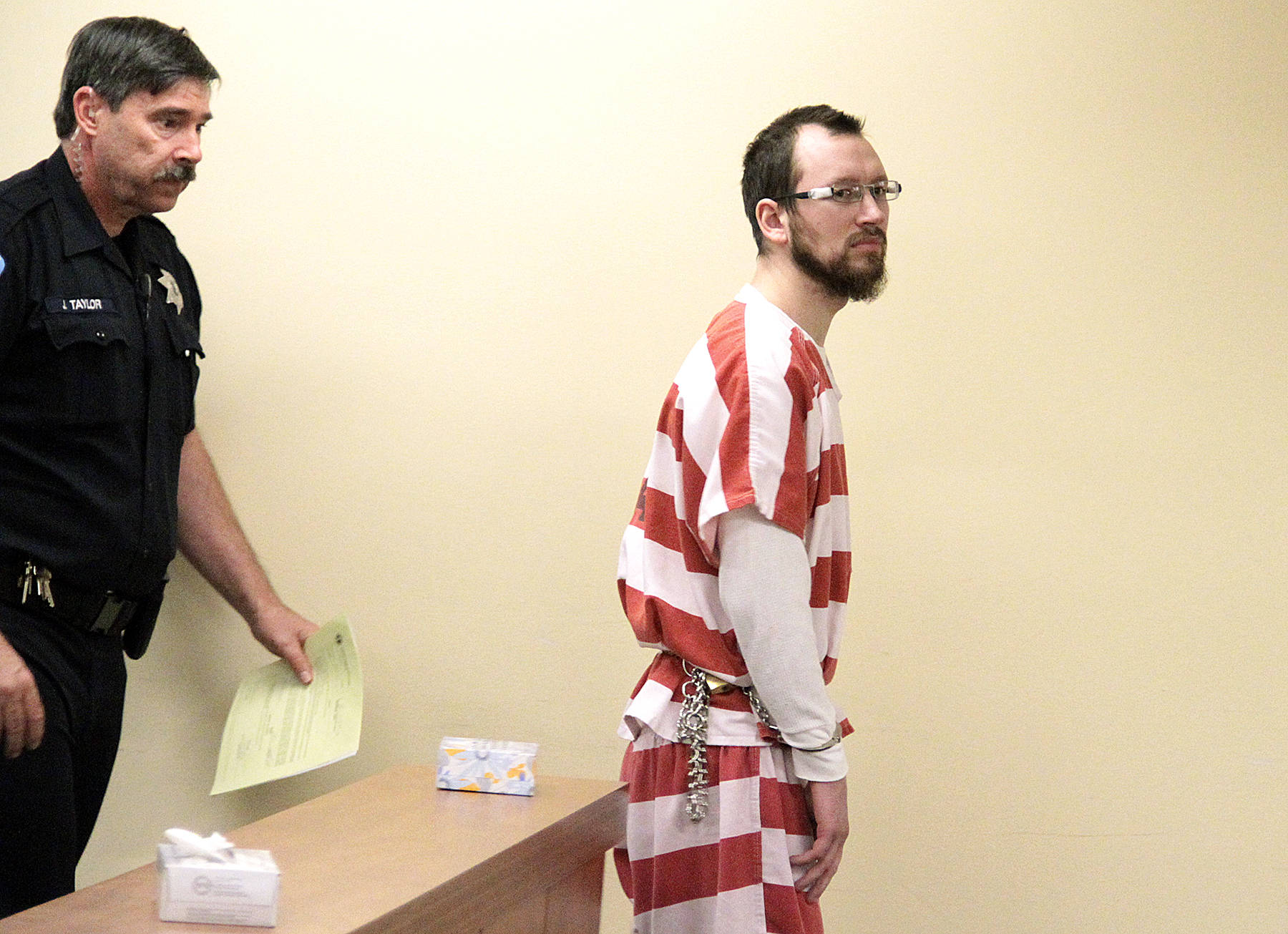A Bainbridge man who was convicted earlier this month of killing his former boss was sentenced Monday to more than 31 years in prison.
Brian Andrew Glaser, 31, was given a prison term of 380 months — to be followed by 36 months of community custody — for the first-degree murder of Donald “Donnie” Duckworth in Kitsap County Superior Court.
Tom Weaver, Glaser’s attorney, told the court at the close of the hearing Monday that he was filing an appeal.
Glaser killed Duckworth, 66, on a Bainbridge property where Duckworth had been hired to help drill a well in August 2018. Glaser was a former employee of Duckworth until the pair had a falling out over a supposed injury Glaser claimed he gotten on the job, and eventually the Bainbridge man stopped showing up for work.
Police said Glaser gunned down Duckworth at a property near High School Road where he had been hired to drill a well.
Duckworth’s family immediately named Glaser as a suspect, and police soon found the gun that was used to kill Duckworth in a backpack in the living room of Glaser’s parents’ home, where he was living at the time.
Glaser also led investigators to a spot in the wooded area in front of his home where he had wrapped up and buried the shell casings from the murder.
Witnesses placed Glaser’s truck at the murder scene, and also found Glaser’s fingerprints on one of the trucks at the High School Road property where Duckworth had been drilling the well.
During Monday’s sentencing, Duckworth’s friends and family members asked Judge Kevin Hull to impose the maximum sentence.
Glaser was expressionless and showed no remorse during his court appearance, and repeatedly glared at members of Duckworth’s family, who filled several court benches in the courtroom.
Prosecutors had asked for a sentence of 320 months for the first-degree murder conviction, plus another 60 months because a firearm was used in the killing.
“The defendant in this case planned and carried out what can be described as an execution,” Deputy Prosecuting Attorney Barbara O. Dennis said in the state’s sentencing memorandum.
Dennis recalled that Glaser had used a silencer on his weapon, which prosecutor’s called a “ghost gun” because it was made from an 80 percent polymer kit that made it untraceable.
Duckworth was working on a property not visible from the road while he was drilling the well, and prosecutors said Glaser must have followed him to his worksite or lay in wait for him.
The evidence also showed, prosecutors said, that Duckworth was shot 17 times.
“Mr. Duckworth fell down to the ground after the first few shots, which means Brian Glaser stood over him, continuing to fire bullet after bullet into Mr. Duckworth’s already bullet-ridden body,” Dennis wrote in the sentencing memo.
There were so many bullet holes, Dennis added, that the first officers who got to the scene thought the victim had been shot with a shotgun.
Prosecutors also pointed to Glaser’s demeanor during the trial, and recalled how he sneered at the victim’s family and continued to look at them even after he was told not to.
When the verdict was read, he showed no emotion except anger, Dennis said, and phone calls Glaser made from jail also showed a lack of remorse. “Instead, he thought it was a big joke and told his mother, ‘We will be laughing about this in no time,’” Dennis said in her memo.
Duckworth’s friends and family told the judge how the murder had left many feeling they had post-traumatic stress disorder, how their lives had been destroyed and how they would never heal from the tragedy.
Afterward, Judge Hull asked Glaser if he wished to make a statement.
“No thanks,” Glaser said.
Hull said the devastation left by the murder created much more than a ripple effect.
“This is a tsunami,” Hull said.
The killing was calculated, premeditated and cold-blooded, he added.
Glaser sat expressionless with his head tilted slightly back as the judge announced he was giving the maximum allowable sentence.
Weaver, Glaser’s attorney, told the judge and prosecutors that he would be filing an appeal.
Glaser, his wrists handcuffed to a padlocked chain around his waist, was then led from the courtroom. He stared at Duckworth’s family and friends for a long moment as he walked past, but few turned their heads to watch him leave.



